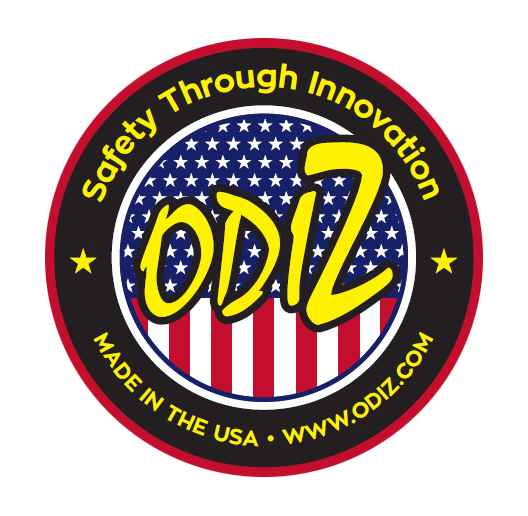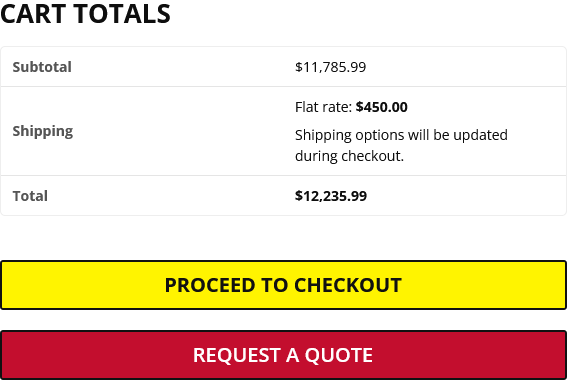
Laser Safety
- Hazards
- Support Services
- Responsibilities
Laser Hazards
There are several hazards (beam and non-beam) that can result from laser equipment. Some of the basis hazards are summarized below. Contact Odiz Laser Safety Support Services if you would like additional information or have any questions or concerns about laser safety at your facility.
Laser Radiation Hazards
Lasers emit beams of optical radiation. Optical radiation (ultraviolet, visible, and infrared) is termed non-ionizing radiation to distinguish it from ionizing radiation such as X-rays and gamma rays, which are known to cause different biological effects.
Eye Hazards
- Corneal or retinal burns (or both), depending on laser wavelength, are possible from acute exposure with sufficient energies. Corneal, lenticular opacities (cataracts) or retinal injury may be possible from lengthy exposure to excessive levels of ultraviolet radiation due to photochemical effect.
Skin Hazards
- Skin burns are possible from acute exposure to high levels of optical radiation. At certain ultraviolet wavelengths, skin carcinogenesis may occur.
Electrical Hazards
Lethal electrical hazards may be present in most lasers, particularly in high power laser systems.
Chemical Hazards
Utilizing ANSI machine specific standards, OSHA 1910, NFPA, IEC, and, if applicable, your company’s internal best practice standards as reference, Odiz performs a detailed review of site machinery to identify all potential safety and compliance deficiencies.
Other Secondary Hazards
Some other secondary laser hazards include:
- Cryogenic coolant hazards
- Excessive noise from high energy lasers
- X-ray radiation from faulty high voltage (>15kV) power supplies
- Explosions from faulty capacitors and flash lamps
- Fire hazards
ODIZ LASER SAFETY SUPPORT SERVICES
There are several requirements and responsibilities specified within the ANSI standard for laser operations. In many cases, a site Laser Safety Officer (LSO) will ensure compliance to the standard to protect personnel who are potentially impacted by laser hazards. Odiz Laser Safety Support Services can help support site LSOs, companies that may be transitioning between LSOs, or companies that may not have or require a LSO but need support with their laser safety program. Odiz Laser Safety Support Services can provide support services on many of the requirements the standard listed below. Contact Odiz for more information.
Laser Safety Responsibilities
Safety Program
Facilities with lasers are required to establish and maintain adequate policies, and procedures for the control of laser hazards. The policies and procedures must comply with applicable requirements including federal, state and local regulations. Contact Odiz Laser Safety Services for development of your site laser safety program.
Classification
Sites with laser operations are required to classify, or verify classifications of lasers and laser systems. Classifications need to be consistent with the classifications listed in the ANSI standard. Odiz Laser Safety Services can provide support on ensuring your company laser and laser systems are accurately classified.
Hazard Evaluation
The laser standard requires a hazard evaluation of laser work areas. The hazard evaluation must be conducted in accordance with the ANSI standard. Contact Odiz Laser Safety Services for help with your site laser hazard evaluation needs.
Control Measures
Facilities using lasers within their operation must ensure that the prescribed control measures are implemented and maintained in effect. This includes avoiding unnecessary or duplicate controls, recommending or approving substitute or alternate control measures when primary ones are not practical or feasible. Odiz Laser Safety Services can help ensure the right control measures are in place to protect employees. Odiz also designs and builds custom laser enclosures.
Procedure Approvals
Where applicable, laser operators are required to approve Class 3B and Class 4 SOPs and other procedures that may be part of the requirements for administrative and procedural controls. Contact Odiz Laser Safety Services for help with your site laser procedures.
Protective Equipment
Facilities operating lasers are required to recommend of approve protective equipment such as eyewear, clothing, barriers and screens, that may be required to ensure personnel safety. Additionally, the protective equipment must be audited periodically to assure proper working order. Odiz Laser Safety Services can help laser users identify the proper protective safety equipment.
Signs and Labels
Sites operating lasers are required to ensure the wording on the area warning signs and equipment labels are accurate and legible. Contact Odiz Laser Safety Services for help with laser sins and labeling.
Facility and Equipment
Where applicable, sites operating lasers are required to review Class 3B and Class 4 laser installations, facilities, and laser equipment prior to use. This also applies to modification of existing facilities or equipment. Contact Odiz Laser Safety Services for support.
Training
Sites operating lasers are required to ensure that adequate safety education and training are provided to laser personnel. The frequency of refresher training shall be considered on the basis of the total hazard evaluation criteria per the ANSI standard. Odiz Laser Safety Services can support your sites laser safety training need. Contact us today to schedule your initial or refresher training.
Medical Examination
Where applicable sites operating lasers must ensure proper medical examinations when required. Contact Odiz Laser Safety Services for support.
Records
Sites operating lasers are required to ensure that the necessary records required by the applicable government regulations are maintained. It is also required appropriate names of individuals are submitted to the medical officer and ensure that the applicable medical examinations have been scheduled and performed where necessary. Other records documenting the maintenance of the safety program, such as training records, audits and SOP approvals are also required to be maintained. Odiz Laser Safety Services can help with your laser recordkeeping system. Contact us for more information.
Audits, Surveys and Inspections
The standard requires periodic audits or surveys by inspection for the presence and functionality of the laser safety features and control measures required for each Class 3B and Class 4 laser or laser system in the laser facilities. Odiz Laser Safety Services performs laser audits and inspections according to the ANSI standard. Contact us today to schedule your site laser audit.
Accidents
A plan should be developed to respond to notifications of incidents of actual or suspected exposure to potentially harmful laser radiation. The plan should include the provision for medical assistance for the potentially exposed individual, and provisions for the investigation of the incident and documentation for reporting the results of the investigation. Contact Odiz Laser Safety Services for development of your site laser safety program.
Approval of Laser Systems Operations
Approval of a Class 3B or Class 4 laser or laser system for the operation shall be given only if the LSO is satisfied that the laser hazard control measures are adequate. These include SOPs for maintenance and service operations within enclosed systems and operation procedures for Class 3B and Class 4 laser systems. The procedures should include adequate consideration of safety from non-beam hazards. Contact Odiz Laser Safety Services for help with your site laser procedures.
Personnel Responsibilities
Laser Safety Officer Responsibilities
The LSO a significant responsibility of any laser safety program for Class 3B and Class 4 laser systems. Per the ANSI standard, an individual must be designated as the LSO with the authority and responsibility to effect the knowledgeable evaluation of laser hazards, to monitor and enforce control measures. The performance of this individual determines the safety, hazard awareness, regulatory compliance, and staff acceptance of laser safety.
Supervisor Responsibilities
The supervisor of individuals working with of having the potential for exposure to greater than Class 1 laser radiation should have a basic overall knowledge of laser safety requirements for the lasers under the supervisor’s authority.
The following are the minimum set of responsibilities for the laser supervisor:
- The supervisor must be responsible for the issuance of appropriate instructions and training materials on laser hazards and their control to all personnel who may work with lasers that are operated within the supervisor’s jurisdiction.
- The supervisor must not permit the operation of a laser unless there is adequate control of laser hazards to employees, visitors, and the general public.
- The supervisor must submit the names of individuals scheduled to work with lasers to the LSO and must submit information as requested by the LSO for training completion.
- When the supervisor knows of, or suspects, an accident resulting from a laser operated under his or her authority, the supervisor shall immediately upon becoming aware of a suspected laser incident implement the company’s accident response plan and ensure it includes notification of the LSO.
- If necessary, the supervisor shall assist in obtaining appropriate medical attention for any employee involved in a laser accident.
- The supervisor must not allow operation of a new or modified Class 3B or Class 4 laser under his or her authority without the approval of the LSO.
- The supervisor must submit plans for Class 3B and Class 4 laser installations or modifications of installations to the LSO for review.
- For Class 3B and Class 4 lasers and laser systems, the supervisor must be familiar with the SOPs and ensure that they are provided to users of such lasers.
Employee Responsibilities
Employees working with lasers or laser systems must have, where applicable, the following minimal responsibilities:
- An employee must not energize or work with or near a laser unless authorized to do so by the supervisor for that laser.
- An employee must comply with the safety rules and procedures prescribed by the supervisor and the LSO. The employee shall be familiar with all the applicable operating procedures.
- When and employee operating a laser knows or suspects that and accident has occurred involving that laser, or a laser operated by any other employee, and that such accident has caused injury or could potentially have caused an injury, he or she must immediately inform the supervisor. If the supervisor is not available, the employee shall notify the LSO.

